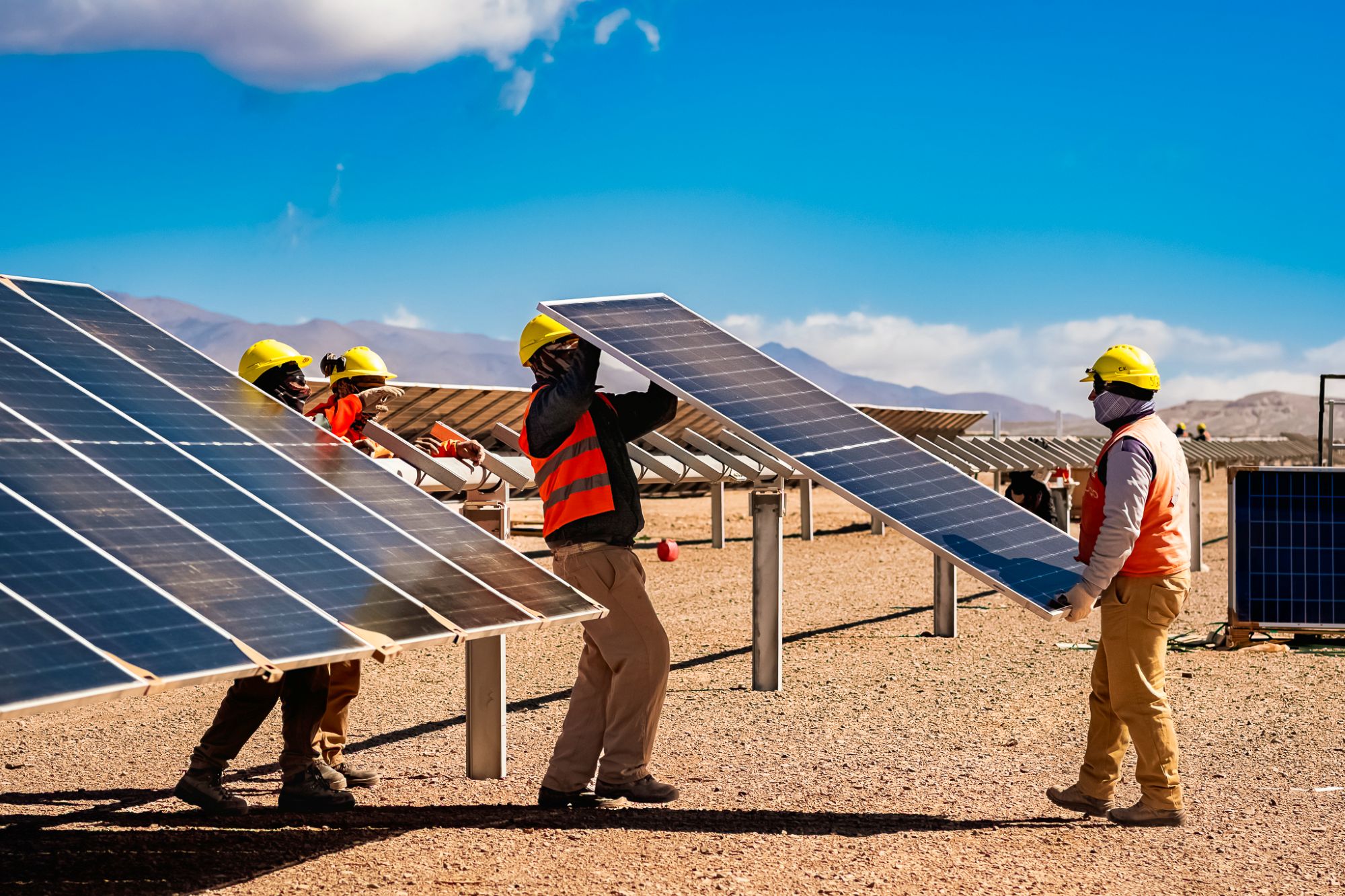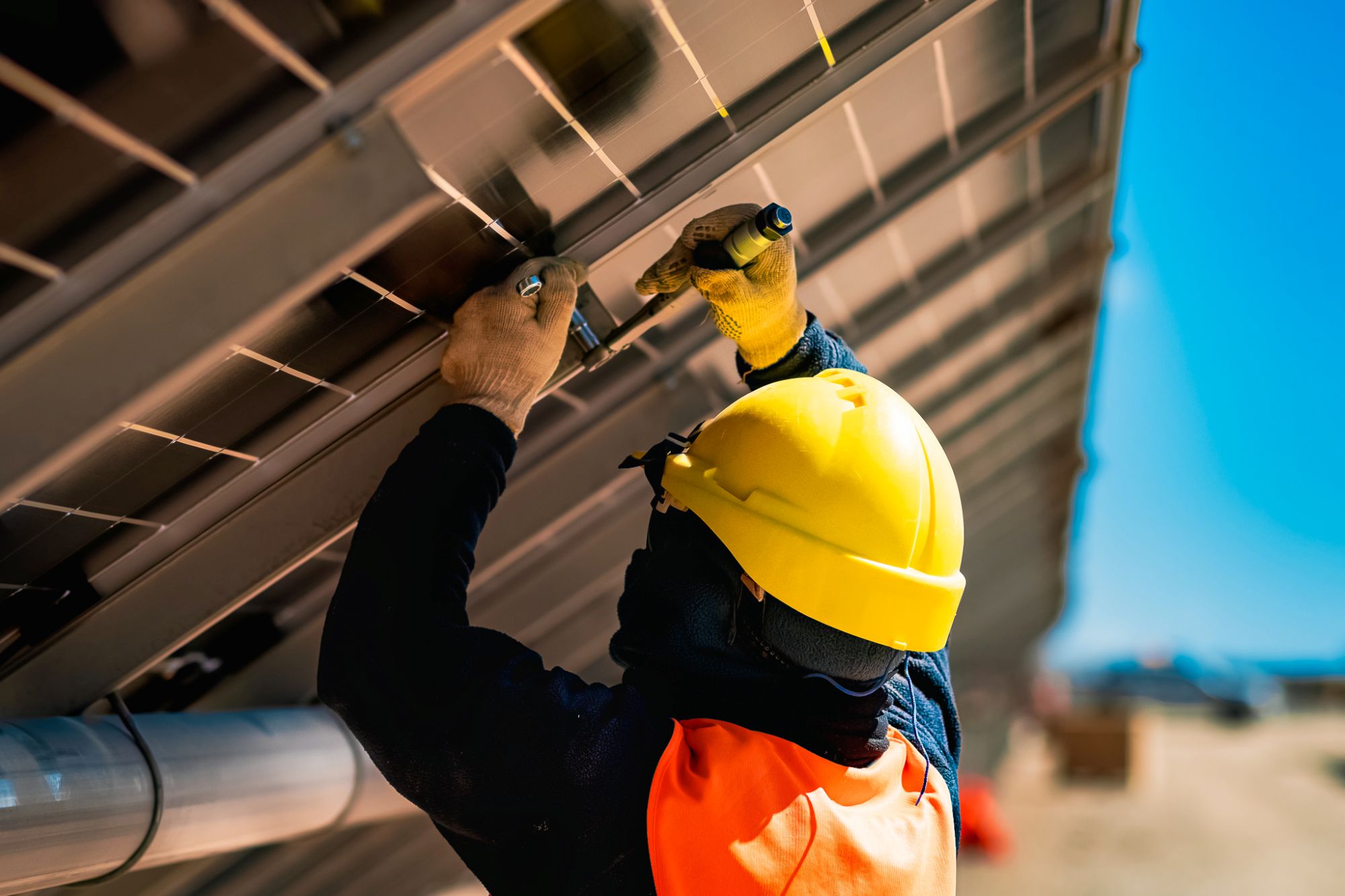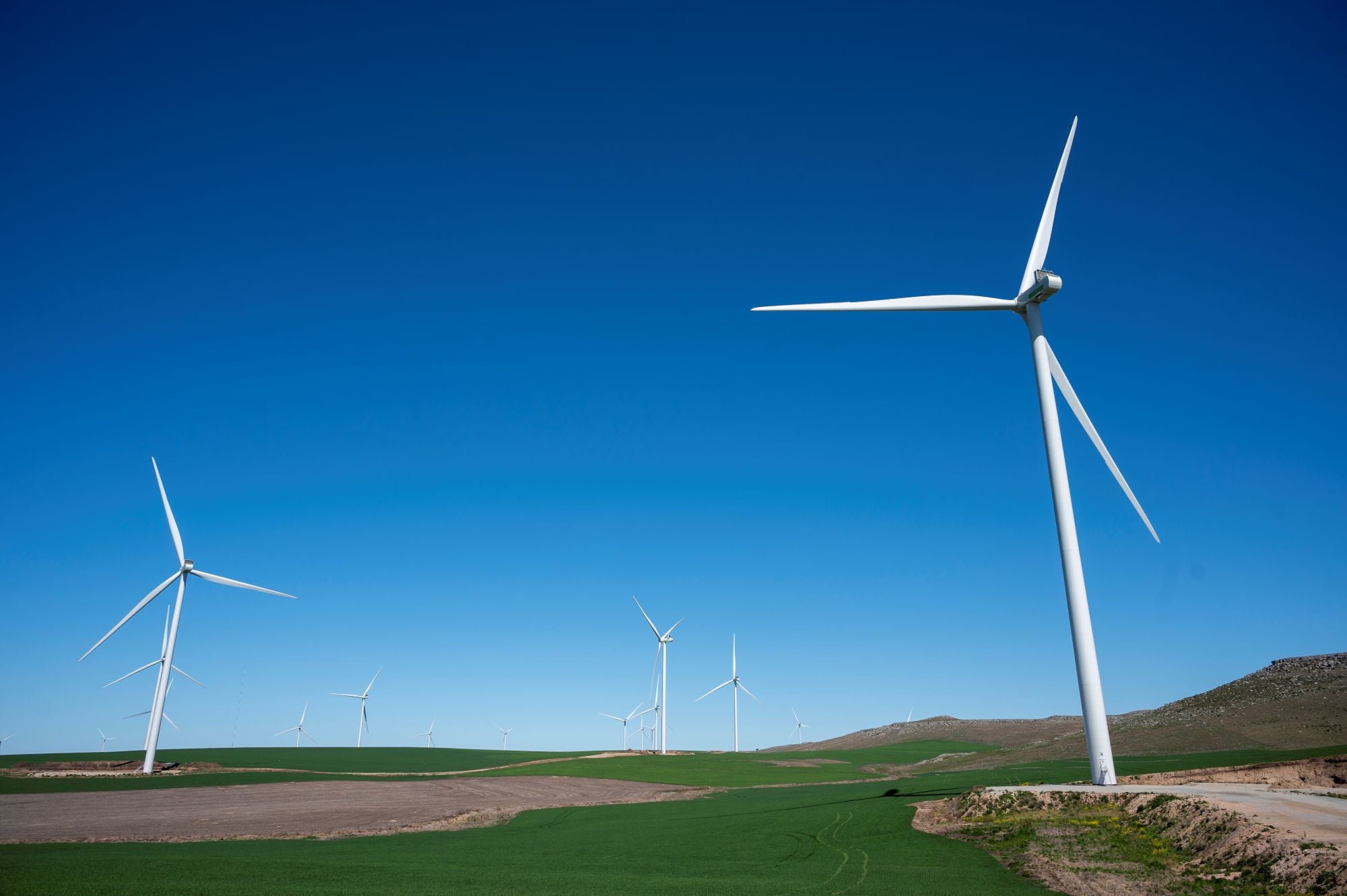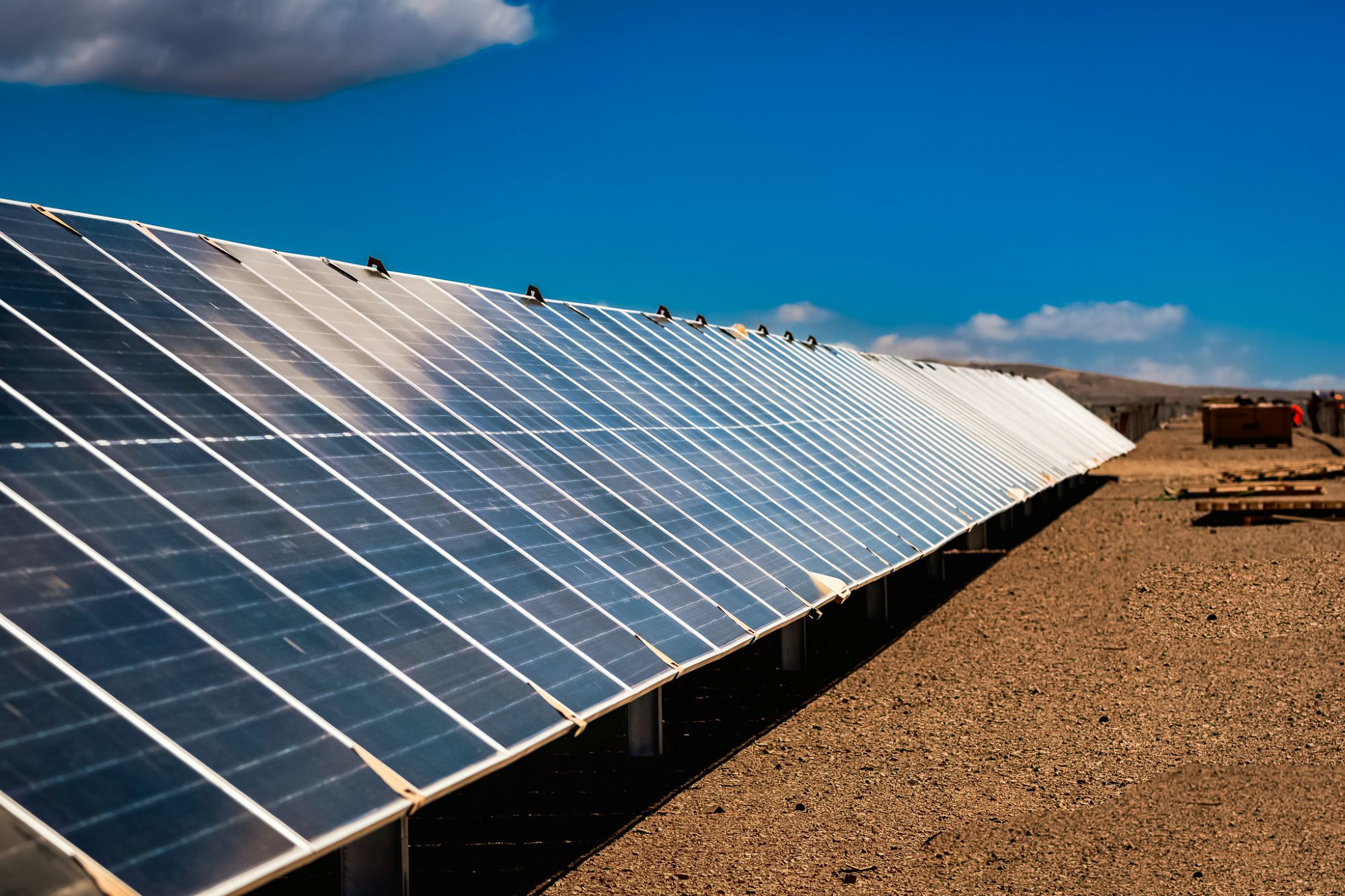
From Ambition to Action: Advancing Renewable Energy Supply and Gender Equality in Argentina
Genneia
Genneia, a leading renewable energy company in Argentina, has installed over 1 GW of renewable energy capacity, significantly contributing to the country's climate goals. Supported by FinDev Canada with USD 80 million in loans, Genneia's projects generate clean energy and reduce CO2 emissions. The company also promotes gender equality, increasing women's representation in its workforce. Genneia exemplifies how private sector initiatives can advance sustainable development and gender equality.

Latin America and the Caribbean
Sustainable Infrastructure: Support to low-carbon, climate-resilient infrastructure. Sub-sectors include energy, including renewables and energy efficiency; transportation; water and sanitation; and digital infrastructure.
Climate and Nature Action: Building low-carbon and climate-resilient and nature-positive economies, including through sustainable infrastructure
Gender Equality: Mainstreaming gender equality in investment activities to support women’s economic empowerment, gender equality, and improve business performance
Market Development: Developing markets to support quality job creation, capital markets, and access to finance as well as products and services that raise living standards and add value to the economy
2X Challenge: The 2X Challenge is an initiative that seeks to support businesses that provide women in emerging economies with access to leadership opportunities, quality employment, and products and services that enhance their economic participation and inclusion
The Challenge
In the urgent battle against climate change, one of the cornerstones of global efforts lies in establishing Nationally Determined Contributions (NDCs)[1] and monitoring their implementation progress. These country-level commitments, outlined by signatories of the Paris Agreement, serve as blueprints towards collective action to limit global warming.
In 2021, the government of Argentina established its latest NDCs, pledging to increase the share of non-hydro renewable energy produced in the national energy mix to 20% by 2025 and reach net-zero carbon emissions by 2050[2]. The country’s power generation is currently dominated by natural gas (65%) and hydropower (18%), followed by nuclear (8%), and wind and solar contributing 7% and 1%, respectively, to the national energy mix[3].
Argentina has advantageous geography, including vast elevated plains, coastal regions, and abundant sunshine, which is ideal for harnessing solar and wind energy. However, similarly to other emerging markets and developing economies (EMDEs), attracting investments into the country’s renewable energy projects remains challenging. Overall, EMDEs account for two-thirds of the world’s population, yet they are recipients of only one-fifth of investments in clean energy. Lower-than-expected foreign investment flows in Argentina due to historic economic instability presents additional challenges to the sector growth.
1 NDCs are national plans detailing each country's efforts to reduce emissions and adapt to climate impacts, aiming to meet global temperature goals. For more information see: Nationally Determined Contributions (NDCs) | UNFCCC
2 Argentina | NDC Action Project
3 Percentages may not add up to 100% due to rounding


The Opportunity
Genneia, one of Argentina’s leading renewable energy companies, has successfully completed 18 projects installing 1,256 MW in just over 6 years. It has become the first energy producer in the country to surpass 1 GW of installed renewable energy capacity, which translated in 2024 to a fifth of Argentina’s overall renewable energy capacity produced.
Throughout 2023-2024, FinDev Canada supported Genneia with two corporate loans totaling USD 80 million to finance additional renewable energy projects. This partnership has promoted low-carbon transition in Argentina and mitigation of greenhouse gas emissions, while contributing towards the country’s NDCs. The financing also allowed Genneia to access USD-dominated long-term financing, which is typically hard to obtain in emerging markets like Argentina due to economic instability and limited access to international capital markets. In addition to climate and economic benefits, Genneia’s projects are poised to generate positive outcomes for women through efforts to promote gender equality in the energy sector.


Impact so far
Supporting renewable energy generation and NDCs commitments in Argentina
FinDev Canada’s investment is supporting four greenfield projects, including three solar photovoltaic plants (Tocota, Los Molles, Anchoris) and one wind power plant (La Elbita). Altogether, they are expected to generate 1.6 TWh of clean energy, helping to avoid approximately 720,000 tons of CO2 emissions per year. This is equivalent to supplying more than 410,000 households in Argentina. As of December 2023, Genneia generated 19% of Argentina’s renewable electricity while avoiding nine times more GHG emissions than it generated.
“We are proud to secure a long-term financing agreement with the support of FinDev Canada. This backing strengthens our leadership in Argentina and allows us to fulfill our commitment to providing renewable energy to large industrial users, advancing the decarbonization of Argentina's industry. Moreover, this agreement reinforces our leadership in obtaining long-term financing from development banks and export credit agencies.”
Enhanced domestic energy capacity not only powers up key sectors of the Argentinian economy such as agriculture, manufacturing, and transportation. It also reduces dependencies on costly energy imports. In addition, Genneia is an important job creator on a provincial level. It directly employs over 350 full-time permanent local staff, offering quality jobs through benefits that go above minimum legal requirements, such as flexible work hours and health benefits.

Promoting gender equality within the energy sector
Genneia stands out as a corporate actor dedicated to promoting gender equality, too. Worldwide women are underrepresented in the energy industry, with Argentina being no exception. Women account for 29% and 22% of workers in the country’s wind and solar energy sectors, respectively, which is higher than in conventional energy sectors (17%), yet still far from parity.
Through FinDev Canada’s support under the first transaction, the company committed to increasing women’s representation across its workforce from 24% in 2022 to at least 30% by 2027. In 2024, Genneia had already reached this target and decided to make a further pledge under the second loan with FinDev Canada.
Genneia’s success to rapidly and meaningfully increase the share of women across the organization was underpinned by new measures in its human resource policy. These included targeted recruitment of local women for Genneia projects, diversity and inclusion training for members of recruitment panels, talent managers, as well as construction and project managers.
“Women are still underrepresented in technical careers, while cultural barriers limit their progress into leadership roles in our country. At Genneia, we are committed to promoting women's contributions in the renewable energy field by connecting them and supporting their professional development through programs that include them from the very beginning of their careers.”
In recognition of these efforts, FinDev Canada’s first loan to Genneia qualified for the 2X Challenge, an initiative which has mobilised USD 34 billion in investments supporting gender equality and women’s economic empowerment since 2018.

Looking ahead
For FinDev Canada’s second loan, signed in October 2024, Genneia has increased its ambition as a gender champion by focusing not only on the women in its workforce, but also on women-led or owned suppliers in its supply chains. As a result, FinDev Canada has been proud to qualify this investment as its first under the 2024-2027 round of the 2X Challenge.
Genneia exemplifies how the private sector can help support implementation of NDCs by turning ambitious targets into real, sustainable actions on the ground. The company’s achievements support the transition towards a low-carbon economy, while championing gender equality within Argentina’s renewable energy sector.
